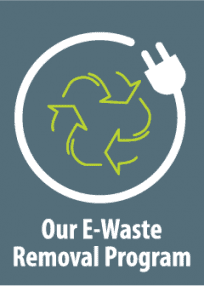Corporate Responsibility

Corporate Social Responsibility (CSR) is a concept that organizations and mostly corporations, have an obligation to consider the interests of customers, employees, shareholders, communities, and ecological considerations in all aspects of their operations. This obligation is seen to extend beyond their statutory obligation to comply with legislation.
CSR is closely linked with the principles of Sustainable Development, which argues that enterprises should make decisions based not only on financial factors such as profits or dividends, but also based on the immediate and long-term social and environmental consequences of their activities. from Green At Work Magazine
Cultivating the Green Consumer
http://www.ssireview.org/articles/entry/cultivating_the_green_consumer/
Consumers say they want to buy ecologically friendly products and reduce their impact on the environment. But when they get to the cash register, their Earth-minded sentiments die on the vine. Although individual quirks underlie some of this hypocrisy, businesses can do a lot more to help would-be green consumers turn their talk into walk.
Corporate Responsibility and the Environment: What is the Right Thing To Do?
http://hbswk.hbs.edu/item/5036.html
It’s a question often debated, but seldom answered authoritatively: Do companies have a social responsibility to protect the environment beyond legal requirements?
Specifically, may companies do so within the scope of their fiduciary responsibilities to their shareholders? Can they do so on a sustainable basis? Should firms sacrifice profits for positive environmental impacts? And do firms at least sometimes behave this way?
Striving to find authoritative insights into those questions, three Harvard faculty members hosted a colloquium on the subject in December 2003, the results of which have been published in a new book: Environmental Protection and the Social Responsibility of Firms: Perspectives from Law, Economics, and Business.

THE TOP 50 SOCIALLY AND ENVIRONMENTALLY RESPONSIBLE COMPANIES
Source: The Natural Marketing Institute, Harleysville, Pa.
| 1.Microsoft 2.Whole Foods Market 3.Kellogg’s 4.McDonald’s 5.Home Depot 6.Walt Disney 7.UPS 8.Coca-Cola 9.Starbucks 10.PepsiCo 11.Johnson & Johnson 12.Procter & Gamble 13.Kimberly Clark 14.Lowe’s 15.Target 16.Ford 17.Apple 18.Dell 19.HJ Heinz 20.Eastman Kodak 21.3M 22.Kraft 23.General Motors 24.Motorola 25.General Electric |
26.Nike 27.Pfizer 28.Anheuser-Busch 29.Avon 30.FedEx 31.Google 32.Boeing 33.Merck 34.Amazon 35.Xerox 36.Sara Lee 37.Yahoo! 38.Wells Fargo 39.Intel 40.Wal-Mart 41.eBay 42.Wrigley 43.Verizon 44.IBM 45.Harley-Davidson 46.American Express 47.Hewlett-Packard 48.MetLife 49.Bristol-Myers Squibb 50.Colgate Palmolive |
Interested in a green-collar career? Click here to find out more!






